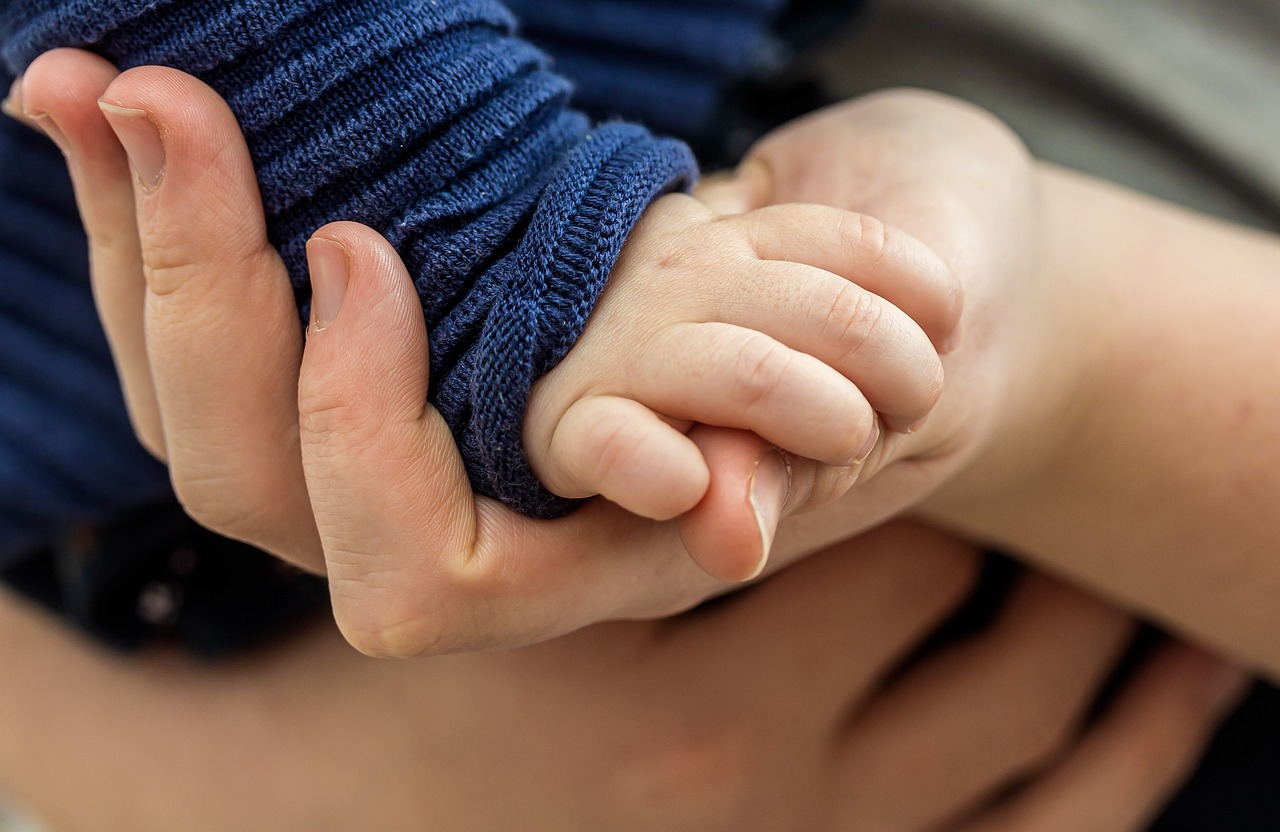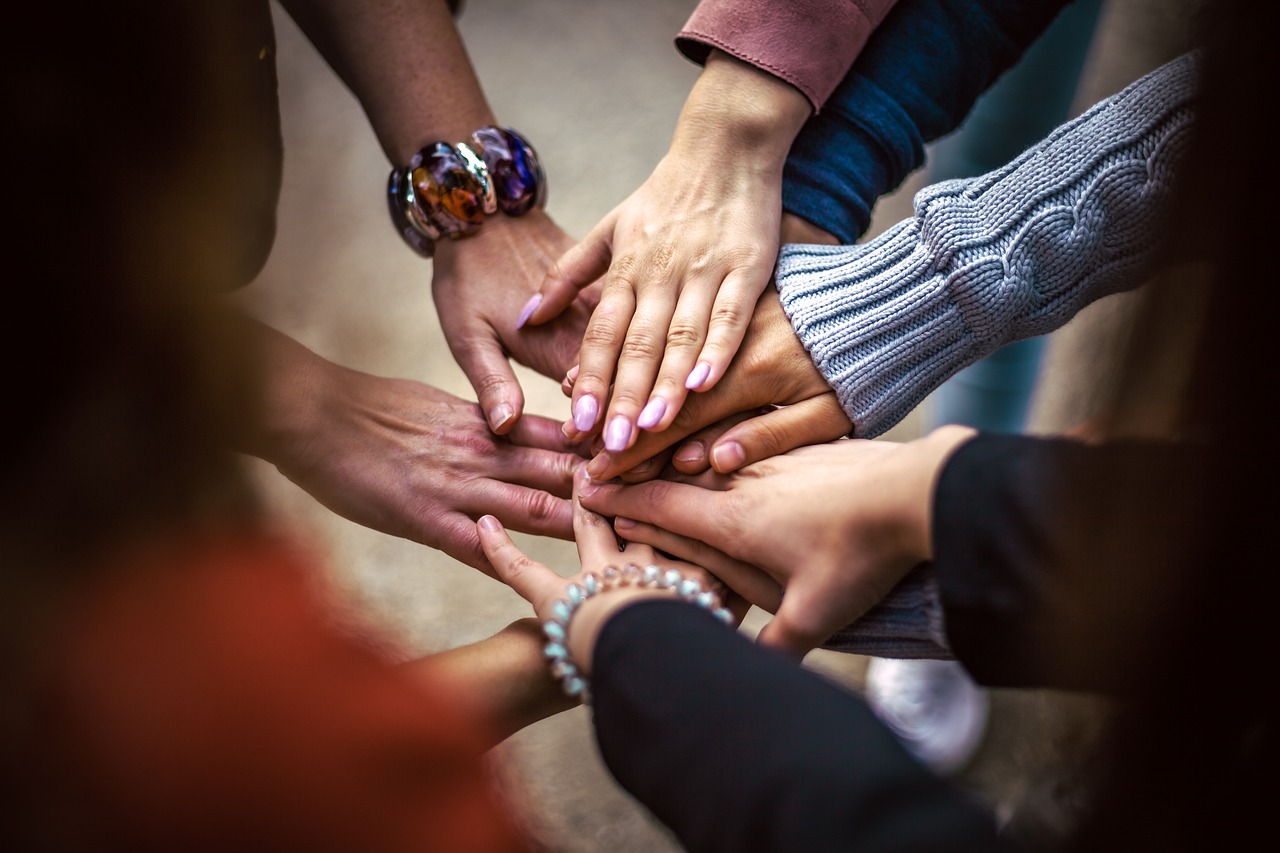How Technology Affects Relationships - Social Media Perspective
In today's fast-paced world, technology has woven itself into the fabric of our daily lives, and social media has emerged as a double-edged sword in the realm of personal relationships. It’s fascinating to see how platforms like Facebook, Instagram, and Twitter have not only changed the way we connect but have also reshaped our communication patterns and emotional bonds. Have you ever found yourself scrolling through your feed, feeling more connected yet somehow more isolated? This paradox is just one of the many ways technology influences our interactions. The ability to share moments in real-time and engage with loved ones across distances has transformed relationships, but it has also introduced challenges that were virtually nonexistent in the pre-digital age. Let’s dive deeper into how social media is affecting our relationships, both positively and negatively.
Social media platforms have revolutionized the way we communicate. Gone are the days when a simple phone call or a handwritten letter was the norm. Now, with just a few taps on a screen, we can send instant messages, share photos, and even video chat with someone on the other side of the world. While this instant connectivity is a remarkable advancement, it comes with its own set of challenges. For instance, many people find themselves struggling with face-to-face interactions, as the art of reading non-verbal cues—like body language and tone of voice—has taken a backseat. Imagine trying to have a heartfelt conversation with someone who’s more engrossed in their phone than in what you’re saying. This reliance on digital communication can lead to misunderstandings and a lack of emotional depth in our interactions.
When it comes to romantic relationships, the role of social media can be a mixed bag. On one hand, it can foster a sense of closeness and intimacy; on the other, it can sow seeds of doubt and insecurity. Constant connectivity means that couples can share their lives in real-time, which can enhance feelings of togetherness. However, this same connectivity can also lead to misunderstandings, as partners might misinterpret a simple comment or picture shared online. Have you ever found yourself feeling anxious about what your partner is doing when you see them interacting with someone else online? This is where the balance becomes crucial.
Interestingly, many individuals have found love and companionship through social media. It has broadened the dating pool significantly, allowing people to connect based on shared interests and values that may not be easily found in traditional dating scenarios. With just a few clicks, you can meet someone who shares your passion for hiking, cooking, or even your favorite TV shows. This ease of connection can lead to meaningful relationships that might never have been formed otherwise.
Online dating apps have taken this concept even further, offering a platform where individuals can swipe right or left based on physical attraction and shared interests. While this can be exciting, it also comes with challenges. The sheer volume of potential partners can be overwhelming, leading to a paradox of choice where individuals may struggle to commit. Additionally, the superficial nature of app-based interactions can sometimes overshadow deeper connections. It’s essential to navigate these platforms with a clear understanding of what you’re looking for.
For couples in long-distance relationships, social media can be a lifeline. It facilitates regular communication, allowing partners to share their day-to-day lives despite the miles that separate them. However, this constant connection can also lead to feelings of isolation if one partner feels left out of the other's experiences. It’s a delicate balance to maintain, and open communication is key to ensuring both partners feel valued and included.
One of the darker sides of social media in romantic relationships is the potential for jealousy and trust issues. Partners may misinterpret online interactions or feel threatened by their significant other's social media presence, leading to unnecessary conflict. It’s not uncommon for someone to feel insecure when they see their partner liking photos of attractive individuals or engaging in flirtatious banter online. Trust is a fundamental element of any relationship, and social media can sometimes complicate that trust in unexpected ways.
Friendships have also evolved dramatically with the rise of social media. While platforms like Instagram and Snapchat allow for easy maintenance of connections, they can also dilute the depth of those friendships. Many people find themselves engaging in superficial interactions, where likes and comments replace meaningful conversations. This can create a façade of connection while leaving individuals feeling more isolated than ever.
Social media often emphasizes the number of friends or followers over the quality of relationships. It’s easy to accumulate hundreds of online connections, but how many of those are genuine friendships? This can lead to a paradox where individuals feel more connected yet more alone. The pressure to present a perfect online persona can also stifle authenticity, making it difficult to forge genuine connections.
On the flip side, online platforms can provide valuable support systems. Friends can share experiences, offer advice, and provide emotional support through tough times. However, the depth of personal interactions can sometimes be diluted, leading to a lack of emotional intimacy that is often found in face-to-face conversations. It’s a balancing act—leveraging the benefits of online support while nurturing the depth of in-person relationships.
- How does social media affect communication in relationships?
Social media can enhance communication by allowing instant messaging and sharing, but it may also hinder face-to-face interactions and the understanding of non-verbal cues.
- Can social media lead to jealousy in relationships?
Yes, social media can exacerbate jealousy and trust issues as partners may misinterpret online interactions or feel threatened by their significant other’s online presence.
- What are the pros and cons of online dating?
Online dating can broaden your dating pool and help find compatible partners, but it can also lead to superficial interactions and overwhelm due to the number of options.
- How can social media support long-distance relationships?
Social media facilitates regular communication and emotional support, helping couples maintain their connection despite physical distance.

Impact of Social Media on Communication
Social media has fundamentally transformed the way we communicate, creating a digital landscape where instant messaging and content sharing have become the norm. Imagine a world where you can reach out to someone across the globe with just a few taps on your screen. Sounds incredible, right? However, this convenience comes with its own set of challenges. While social media platforms like Facebook, Instagram, and Twitter allow for seamless interaction, they often hinder our ability to engage in face-to-face conversations. Have you ever noticed how people often struggle to maintain eye contact during in-person chats, all while their phones buzz with notifications? This phenomenon is a clear indication of how digital interactions can sometimes overshadow genuine human connections.
Moreover, the lack of non-verbal cues in online communication can lead to misunderstandings. When we communicate in person, we rely on body language, tone of voice, and facial expressions to convey our feelings and intentions. However, in the realm of social media, these essential cues are often absent, leading to misinterpretations. For instance, a simple text message can be read in multiple ways, depending on the reader's mood or past experiences. This ambiguity can create tension in relationships, as individuals may react defensively to messages that were not intended to provoke such responses.
Additionally, the pressure to maintain a certain image online can further complicate communication. People often curate their social media profiles to project a specific persona, which may not reflect their true selves. This can lead to feelings of inadequacy among friends and followers, who might compare their own lives to the seemingly perfect lives of others. As a result, the authenticity of our interactions may be compromised, leaving individuals feeling more isolated despite being "connected" to a vast network of people.
To illustrate the impact of social media on communication, consider the following table that highlights the pros and cons:
| Pros | Cons |
|---|---|
| Instant communication | Misinterpretation of messages |
| Global connectivity | Superficial relationships |
| Access to diverse perspectives | Pressure to maintain an online persona |
| Ability to share experiences quickly | Reduced face-to-face interactions |
In conclusion, while social media has revolutionized the way we communicate, it also poses significant challenges that we must navigate. The key to maintaining healthy relationships in this digital age lies in finding a balance between online interactions and real-world connections. So, the next time you reach for your phone to send a message, consider how it might affect your communication and relationships. Are you truly engaging with others, or are you just skimming the surface?

Effects on Romantic Relationships
In today's digital age, social media plays a pivotal role in shaping romantic relationships. While it can act as a bridge connecting partners, it also has the potential to create rifts that can be challenging to navigate. The constant connectivity offered by platforms like Instagram, Facebook, and Twitter can enhance intimacy, but it can also lead to misunderstandings and trust issues. Imagine being able to share every moment of your life with your partner, from the mundane to the magnificent; it sounds great, right? However, this same access can sometimes feel overwhelming, leaving individuals questioning the authenticity of their partner's feelings and intentions.
One of the most significant impacts of social media on romantic relationships is the way it can influence trust. For instance, partners might find themselves second-guessing each other's interactions with others online. A simple like on a friend's photo can spark jealousy or insecurity. This often leads to unnecessary arguments, as one partner may interpret the other's online behavior as flirtatious or inappropriate. In fact, studies have shown that couples who frequently communicate through social media are more likely to experience misunderstandings stemming from online interactions.
Furthermore, the ability to constantly check in on a partner's social media presence can create a sense of surveillance. This can lead to feelings of suffocation or a lack of privacy, which are detrimental to a healthy relationship. It's essential to strike a balance between sharing and personal space. After all, every relationship needs a little mystery, doesn't it? The key lies in open communication and establishing boundaries around social media use.
But it's not all doom and gloom! Social media can also have its positives in romantic relationships. For many, it serves as a tool for building deeper connections. Couples can share experiences, send sweet messages, and even engage in playful banter that strengthens their bond. Moreover, it allows partners to support each other publicly, showcasing their love and appreciation to the world. This public display of affection can enhance feelings of intimacy and commitment.
To illustrate the dual nature of social media's impact on romantic relationships, consider the following table:
| Positive Effects | Negative Effects |
|---|---|
| Enhanced communication | Increased jealousy |
| Public displays of affection | Misunderstandings |
| Shared experiences | Privacy concerns |
| Support during tough times | Over-dependence on online validation |
In conclusion, the effects of social media on romantic relationships are multifaceted. While it can foster deeper connections and facilitate communication, it can also introduce complications that require careful management. Ultimately, the success of a relationship in the age of social media relies on the ability of partners to communicate openly about their feelings and to establish healthy boundaries. So, how do you navigate the digital landscape while keeping your relationship intact? It all comes down to balance, trust, and understanding.
- How can social media enhance my romantic relationship?
Social media can enhance your relationship by allowing you to share experiences, communicate easily, and publicly express affection. - What are some signs that social media is negatively impacting my relationship?
Signs include increased jealousy, frequent arguments about online behavior, and feelings of insecurity. - How can we set boundaries around social media use?
Discuss and agree on what is acceptable to share online, how often to check each other's profiles, and establish privacy settings that make both partners comfortable.

Building Connections Online
In today’s fast-paced digital world, the quest for love and companionship has taken a fascinating turn, thanks to social media. It’s like finding a needle in a haystack, but the haystack is now a vast online universe filled with potential partners just a click away. Many individuals are discovering that building connections online can be both exciting and rewarding. With platforms like Facebook, Instagram, and dedicated dating apps, the barriers that once kept people apart are crumbling. But how does this transformation truly affect our relationships?
One of the most significant advantages of online platforms is the ability to connect with people who share your interests and values. Imagine this: you’re passionate about hiking, and instead of waiting for a chance encounter at a local trail, you can join a Facebook group dedicated to hiking enthusiasts. Here, you can chat, share experiences, and even plan meet-ups. This kind of targeted connection can lead to friendships and romantic relationships that might never have blossomed in a traditional setting.
However, while the potential for meaningful connections has increased, it’s essential to acknowledge the flip side of the coin. The online world can sometimes feel overwhelming, with countless profiles and messages vying for your attention. It’s easy to get lost in the sea of options, leading to a phenomenon known as “choice overload.” This can result in frustration and anxiety, leaving individuals feeling more isolated despite being surrounded by a virtual crowd.
Furthermore, the nature of online interactions can create a unique set of challenges. For instance, the lack of non-verbal cues—like body language and tone of voice—can lead to misunderstandings. When you’re chatting with someone online, it’s easy to misinterpret their words or intentions. A simple joke can come off as sarcasm, or a casual message can be perceived as disinterest. This ambiguity can complicate budding relationships, making it crucial for individuals to be clear and intentional in their communication.
To navigate these waters effectively, consider the following tips for building connections online:
- Be Authentic: Present your true self. Authenticity fosters trust and attracts like-minded individuals.
- Engage Meaningfully: Instead of generic messages, ask questions that encourage deeper conversations. This shows genuine interest.
- Utilize Video Calls: Whenever possible, switch from texting to video calls. Seeing someone's face can bridge the gap created by text-based communication.
- Take Your Time: Don’t rush into things. Building a solid foundation takes time, whether online or offline.
In conclusion, while building connections online presents its own unique challenges, the opportunities for forming meaningful relationships are abundant. With the right approach and a little patience, individuals can navigate the digital landscape and find love, friendship, and support in ways that were once unimaginable. Embrace the adventure, keep your heart open, and you might just find that perfect connection waiting for you in the vast online world.
Q: Is it safe to meet someone I met online?
A: Always prioritize your safety. Meet in public places, inform a friend about your plans, and trust your instincts.
Q: How can I ensure genuine connections online?
A: Focus on quality over quantity. Engage in meaningful conversations and seek common interests to build a solid foundation.
Q: What should I do if I feel overwhelmed by online dating?
A: Take breaks when needed. It’s okay to step back and recharge. Remember, it’s about quality connections, not just numbers.

Online Dating Platforms
The rise of online dating platforms has completely transformed the landscape of modern romance. Gone are the days when meeting someone meant chance encounters at social gatherings or through mutual friends. Now, with just a few swipes or clicks, individuals can connect with potential partners from all over the world. This digital matchmaking has opened up a universe of opportunities, allowing people to find love based on shared interests, values, and preferences. Imagine being able to filter potential dates by hobbies, lifestyle choices, or even favorite movies—it's like having a personalized matchmaker at your fingertips!
However, while these platforms offer exciting possibilities, they also come with their own set of challenges. For instance, the sheer volume of options can lead to decision fatigue. With so many profiles to browse, how does one choose? It’s akin to being in a candy store, where the abundance of choices can make it hard to settle on just one treat. Moreover, online dating can sometimes foster unrealistic expectations. The curated nature of profiles, where individuals showcase only their best moments, can create a distorted perception of reality. This can lead to disappointment when the actual person doesn’t match up to their online persona.
Another significant aspect to consider is the potential for miscommunication. When interactions occur through screens, subtle cues and body language are often lost. This could result in misunderstandings, which might affect the budding relationship. In fact, studies have shown that many couples who met online experience a higher rate of misinterpretation in their early communications compared to those who met in person. Therefore, while online dating platforms can facilitate connections, they also require a level of patience and understanding as partners navigate their way through the initial phases of getting to know each other.
To illustrate the popularity and diversity of online dating platforms, consider the following table that highlights some of the most popular options available today:
| Platform | Target Audience | Unique Features |
|---|---|---|
| Tinder | General | Swipe-based matching, location-based |
| eHarmony | Serious relationships | In-depth personality matching |
| OkCupid | General | Extensive questionnaires for compatibility |
| Bumble | Women-led interactions | Women initiate conversations |
| Hinge | Relationship-focused | Prompts to encourage meaningful conversations |
In conclusion, online dating platforms have revolutionized the way we seek out romantic connections. They provide a plethora of options that can lead to meaningful relationships, but they also demand a level of discernment and emotional intelligence. As we navigate this digital dating landscape, it's crucial to remain grounded and remember that behind every profile is a real person with hopes, dreams, and vulnerabilities. So, whether you’re looking for a casual fling or a lifelong partner, embracing the journey with an open heart and mind can lead to delightful surprises.
- Are online dating platforms safe? - While many platforms have safety features, it's essential to exercise caution, such as meeting in public places and informing friends of your plans.
- How do I create an attractive dating profile? - Focus on authenticity; use recent photos, be honest about your interests, and highlight what makes you unique.
- Can online relationships be as fulfilling as traditional ones? - Absolutely! Many couples who meet online build strong, lasting relationships, although they may face unique challenges.

Long-Distance Relationships
Long-distance relationships (LDRs) can feel like a rollercoaster ride, filled with exhilarating highs and gut-wrenching lows. In today's fast-paced digital world, social media plays a crucial role in keeping couples connected despite the miles that separate them. Imagine being able to share your daily experiences, from mundane tasks to exciting adventures, with your partner in real-time. This instant access to each other's lives can foster a sense of intimacy that might be hard to achieve otherwise. However, just like a double-edged sword, the benefits of social media in LDRs come with their own set of challenges.
One of the most significant advantages of social media for couples in long-distance relationships is the ability to maintain regular communication. Platforms like WhatsApp, Facebook, and Instagram allow partners to send messages, share photos, and even video chat, making it possible to feel like you're together, even when you're apart. This constant connectivity helps to bridge the emotional gap that distance can create. For example, you can send a quick text to say, "I miss you!" or share a funny meme that reminds you of your partner. These little gestures can go a long way in nurturing your bond.
However, it's essential to recognize that social media can also lead to feelings of isolation or insecurity in long-distance relationships. When you see your partner posting pictures with friends or engaging in activities without you, it can trigger feelings of jealousy or loneliness. It's easy to fall into the trap of comparing your relationship to what you see online, leading to unrealistic expectations. To combat this, open communication is vital. Discuss your feelings with your partner and establish boundaries regarding social media use. This way, you can both feel secure and supported in your relationship.
Moreover, the challenge of miscommunication can be heightened in LDRs. Text messages can easily be misinterpreted, leading to misunderstandings that could have been avoided in face-to-face conversations. For instance, a simple "I'm busy" text could be taken as indifference, whereas the intention might simply be to convey that they're occupied with work. To minimize these issues, consider setting aside dedicated time for video calls where you can see each other's facial expressions and body language, which can help clarify emotions and intentions.
In conclusion, while long-distance relationships can be challenging, social media offers tools that can help couples stay connected and engaged. By leveraging these platforms wisely and maintaining open lines of communication, partners can navigate the complexities of distance and build a strong, lasting relationship. So, the next time you feel the pangs of separation, remember that a simple message or a shared photo can help bridge that gap, reminding you both that love knows no bounds.
- How can social media help maintain a long-distance relationship?
Social media allows for instant communication, sharing of daily experiences, and emotional support, helping couples feel connected despite the distance. - What are some challenges of long-distance relationships?
Challenges include feelings of isolation, miscommunication, and jealousy, which can arise from seeing your partner's social media activity. - How can couples overcome communication barriers in LDRs?
Setting aside dedicated time for video calls and discussing feelings openly can help mitigate misunderstandings and strengthen the relationship.

Jealousy and Trust Issues
In the digital age, where our lives are often laid bare on social media, jealousy and trust issues have become common challenges in romantic relationships. Imagine scrolling through your partner’s Instagram feed and coming across a picture of them laughing with a friend of the opposite sex. Suddenly, a wave of insecurity washes over you. This is the reality many couples face today, where online interactions can easily lead to misunderstandings and feelings of inadequacy.
Social media creates a unique environment where every like, comment, or interaction can be scrutinized. It's almost like a magnifying glass is held over our relationships, amplifying even the smallest doubts. Partners may find themselves questioning each other's intentions, leading to a cycle of mistrust and insecurity. This phenomenon can be attributed to several factors:
- Visibility: The more we share, the more others can see. This visibility can create a sense of competition and comparison, leading to jealousy.
- Misinterpretation: A simple comment from a friend can be misconstrued, leading to assumptions that may not be true.
- Comparison: Seeing other couples' seemingly perfect relationships can make one feel that their own relationship is lacking.
Moreover, the constant connectivity that social media provides can be a double-edged sword. On one hand, it allows couples to stay in touch throughout the day, but on the other, it can lead to feelings of suffocation. Imagine receiving a text from your partner asking where you are, only to feel like you’re being monitored rather than cared for. This can create a rift in the relationship, as one partner may feel controlled while the other feels anxious about their partner's whereabouts.
To combat these issues, open communication is essential. Couples need to discuss their feelings and establish boundaries regarding social media use. Here are some tips for navigating jealousy and trust issues:
- Set Clear Boundaries: Agree on what is acceptable to share online and what should remain private.
- Communicate Openly: If something bothers you, talk about it instead of letting it fester.
- Build Trust: Focus on strengthening trust through transparency and honesty.
In conclusion, while social media can enhance our connections, it can also introduce significant challenges that require careful navigation. By fostering open dialogue and understanding, couples can work together to mitigate the effects of jealousy and build a stronger, more trusting relationship.
- How can social media lead to jealousy in relationships?
Social media can lead to jealousy by allowing partners to see interactions that may be misinterpreted, leading to insecurity and doubt. - What are some signs of trust issues in a relationship?
Signs may include constant questioning of your partner's whereabouts, feelings of suspicion, or needing reassurance about their loyalty. - How can couples improve trust in their relationship?
Couples can improve trust by maintaining open communication, setting clear boundaries regarding social media, and being transparent about their online interactions.

Influence on Friendships
Friendships have undergone a significant transformation in the age of social media. The way we connect, communicate, and maintain our friendships has evolved, making it easier than ever to stay in touch. With just a few taps on our screens, we can send a quick message, share a funny meme, or even video chat with friends across the globe. However, this convenience comes with its own set of challenges that can complicate our relationships.
One of the most notable impacts of social media on friendships is the ability to maintain connections over long distances. Imagine you’ve moved to a new city or even a different country; social media allows you to keep up with your friends’ lives, share experiences, and feel involved despite the physical distance. This can create a sense of closeness that might not have been possible in previous generations. However, while it’s great to stay connected, it can also lead to a superficial understanding of each other's lives. The curated nature of social media often means we only see the highlights, leading to a distorted perception of reality.
Moreover, the pressure to maintain a perfect online persona can create tension among friends. People often showcase their best moments on platforms like Instagram or Facebook, which can lead others to feel inadequate or left out. This phenomenon can breed feelings of jealousy or resentment, as individuals compare their own lives to the seemingly perfect lives of their friends. The irony is that while social media can foster connection, it can also foster feelings of isolation. It’s a paradox where we have hundreds of friends online yet may feel lonely when we look around at our actual lives.
Additionally, the quality of friendships can suffer due to the sheer volume of connections we maintain online. It’s tempting to collect friends and followers like trophies, but this often comes at the expense of deeper, more meaningful relationships. A recent study found that individuals with a high number of online friends reported feeling more lonely than those with fewer but closer friends. This raises an important question: Are we prioritizing quantity over quality in our friendships?
| Aspect | Social Media's Impact |
|---|---|
| Communication | Instant messaging and sharing updates |
| Connection | Maintains long-distance friendships |
| Perception | Curated content can distort reality |
| Support | Access to emotional support networks |
| Quality | Superficial interactions may dilute depth |
Despite these challenges, social media can also serve as a powerful tool for building support systems among friends. Online platforms allow individuals to share experiences, seek advice, and provide encouragement during tough times. This virtual support can be invaluable, especially for those who may not have access to a robust support network in their immediate surroundings. However, it’s essential to strike a balance between online interactions and real-life connections to ensure that friendships remain meaningful.
In conclusion, while social media has revolutionized the way we maintain friendships, it is crucial to navigate its complexities mindfully. By focusing on quality interactions and being aware of the potential pitfalls, we can harness the power of social media to enrich our friendships rather than diminish them.
- How does social media affect the quality of friendships? Social media can lead to superficial interactions, making it harder to form deep connections.
- Can social media help maintain long-distance friendships? Yes, it allows for regular communication and sharing experiences, which can help keep friendships strong.
- Does having more online friends make you feel less lonely? Ironically, many people report feeling lonelier despite having many online friends, indicating that quality matters more than quantity.
- What are the risks of comparing my life to my friends' lives on social media? This can lead to feelings of inadequacy, jealousy, and resentment, as we often only see the highlights of others' lives.

Quality vs. Quantity of Friendships
In today's hyper-connected world, the age-old debate of quality versus quantity in friendships has taken on a new dimension. Social media platforms have made it easier than ever to accumulate a vast number of friends and followers, but the question remains: does having more friends actually translate to deeper, more meaningful connections? It's a bit like having a massive library filled with books; if you only skim the covers, you’ll never truly understand the stories within. Similarly, many people find themselves in a paradox where they feel connected yet profoundly isolated.
On platforms like Facebook, Instagram, and Twitter, it’s common to see profiles boasting hundreds or even thousands of friends. However, when it comes to true friendship, the depth of the relationship often matters more than the sheer number of connections. A study by the Pew Research Center found that while many people enjoy having a large social media presence, they often report feeling lonely. This contradiction raises an important question: are we sacrificing the quality of our friendships for the sake of quantity?
Consider the following aspects when evaluating the quality of friendships in the age of social media:
- Depth of Interaction: Are your interactions meaningful, or are they just surface-level exchanges? A quick 'like' on a post doesn't replace a heartfelt conversation.
- Support System: Are your friends there for you during tough times? Quality friendships provide emotional support and understanding, while numerous acquaintances may not offer the same level of care.
- Shared Experiences: Do you share experiences and create memories together? True friendships often involve shared moments that deepen the bond.
Interestingly, social media can sometimes create an illusion of friendship. Many users curate their online presence, showcasing only the highlights of their lives. This can lead to feelings of inadequacy among friends, as they compare their behind-the-scenes reality to the polished images presented online. The pressure to maintain a perfect online persona can further dilute the authenticity of friendships, making it challenging to foster genuine connections.
Ultimately, it's essential to strike a balance. While having a large network can be beneficial for networking and casual connections, investing time in nurturing a few close friendships can lead to more fulfilling relationships. Think of it as tending to a garden: a few well-cared-for plants will thrive and bear fruit, while a garden overrun with weeds may look full but offers little in terms of nourishment.
In conclusion, while social media allows us to connect with many, it’s the quality of those connections that truly enriches our lives. So, next time you scroll through your friend list, ask yourself: are these connections meaningful? Are they adding value to my life? The answers may lead you to a more satisfying social experience.
- Q: Does having more friends on social media mean I am more popular?
A: Not necessarily. Popularity can be measured in different ways, and true friendship is about quality, not quantity. - Q: How can I improve the quality of my friendships?
A: Focus on spending quality time with your friends, having meaningful conversations, and being supportive during tough times. - Q: Can social media help me find quality friendships?
A: Yes, it can help you connect with people who share your interests, but it's important to foster those connections offline as well.

Support Systems Online
In today's fast-paced world, online support systems have emerged as vital lifelines for many individuals navigating the complexities of life. Whether it’s through social media platforms, dedicated forums, or support groups, the internet provides a space where people can share their experiences, seek advice, and find solace in knowing they're not alone. Imagine sitting in a cozy corner of your home, scrolling through your phone, and suddenly finding a community that resonates with your struggles and triumphs. It’s like discovering a hidden treasure chest of empathy and understanding!
However, while online support can be incredibly beneficial, it also comes with its own set of challenges. The nature of digital interactions can sometimes dilute the depth of personal connections. For instance, a heartfelt message shared in a group chat may lack the emotional weight of a face-to-face conversation. Furthermore, the anonymity of the internet can lead to miscommunication or even negativity, as people feel emboldened to express opinions they might not share in person. This paradox of connection is often summarized by the phrase: “We’re more connected than ever, yet feel more isolated.”
To illustrate the impact of online support systems, consider the following table that highlights the pros and cons:
| Pros | Cons |
|---|---|
| Accessibility to diverse perspectives and experiences | Lack of emotional depth in interactions |
| 24/7 availability for support | Potential for negativity and trolling |
| Ability to connect with others facing similar challenges | Risk of superficial relationships |
Moreover, online support systems can be especially crucial during times of crisis. For example, during the pandemic, many people turned to social media to find support groups focused on mental health, parenting, or even hobbies. These platforms allowed individuals to share their fears, seek advice, and offer encouragement to one another. It’s fascinating how a simple post can spark a wave of support, transforming a solitary struggle into a collective journey.
However, while these online interactions can provide a sense of community, they should not completely replace in-person connections. It’s essential to strike a balance between online and offline relationships. Engaging in real-life conversations, sharing experiences over coffee, or even participating in local support groups can enhance the emotional support we receive and offer. After all, nothing beats the warmth of a hug or the comfort of a friend sitting beside you during tough times.
In conclusion, while online support systems play a crucial role in providing assistance and understanding, it's vital to remain aware of their limitations. By combining the benefits of online communities with the richness of face-to-face interactions, we can create a well-rounded support network that nurtures our emotional well-being.
- What are the benefits of online support systems? Online support systems provide accessibility, diverse perspectives, and the ability to connect with others facing similar challenges.
- Can online support replace in-person interactions? While online support is valuable, it should complement rather than replace in-person relationships for deeper emotional connections.
- How can I find reliable online support groups? Look for reputable platforms, check reviews, and ensure that the group aligns with your needs and values.
Frequently Asked Questions
- How does social media impact communication in relationships?
Social media has revolutionized communication by enabling instant messaging and sharing of thoughts. However, it can also create barriers in face-to-face interactions, making it difficult to read non-verbal cues. This duality means that while we can connect instantly, we might miss out on the deeper nuances of personal conversations.
- Can social media strengthen romantic relationships?
Yes, social media can strengthen romantic relationships by facilitating constant communication and allowing couples to share experiences. However, it can also lead to misunderstandings and trust issues if partners misinterpret each other's online interactions. The key is to maintain open communication and trust.
- What are the challenges of online dating?
Online dating platforms have made finding love easier, but they come with challenges such as misrepresentation and the potential for superficial connections. Users may find it hard to gauge true compatibility based solely on profiles, which can lead to disappointment.
- How does social media affect long-distance relationships?
Social media can be a lifeline for long-distance relationships, enabling regular communication and emotional support. However, it might also foster feelings of isolation or insecurity if one partner feels disconnected or if misunderstandings arise from online interactions.
- Why do jealousy and trust issues arise from social media?
Jealousy and trust issues can be exacerbated by social media due to the visibility of interactions with others. Partners may misinterpret likes, comments, or friendships online, leading to insecurities and conflicts that might not occur without social media's influence.
- How has social media changed friendships?
Friendships have become easier to maintain thanks to social media, allowing for quick updates and connections. However, this can also lead to superficial interactions where quantity of friends overshadows the quality of relationships, leaving individuals feeling more isolated despite having many connections.
- What are the benefits of online support systems?
Online support systems can provide valuable resources for sharing experiences and advice among friends. They allow individuals to connect over common struggles, but they may also dilute the depth of personal interactions, making it essential to balance online support with real-life connections.



















